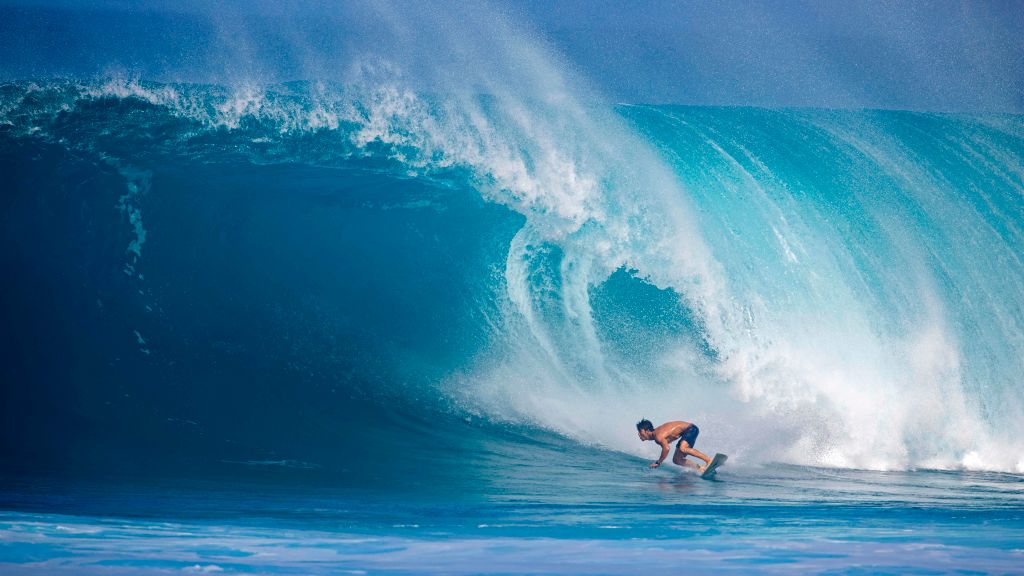
Normally, your 20s and 30s are prime years for forming households and buying first homes. For millennials, that hasn’t exactly been the case so far.
There are signs that that’s about to change trib.al/SKzQpps
There are signs that that’s about to change trib.al/SKzQpps
Millennials’ consumer behaviour has been the phenomenon that launched a million takes.
Early arguments that they had fundamentally different priorities and values eventually gave way to an acknowledgement that no, they were mainly just broke trib.al/SKzQpps
Early arguments that they had fundamentally different priorities and values eventually gave way to an acknowledgement that no, they were mainly just broke trib.al/SKzQpps

So, what’s going on with U.S. households in 2020?
📉One Census Bureau survey says 2020 was the first year on record in which the number of households declined
📈Another Census Bureau survey says 2020 saw the second-biggest increase on record
🤔 trib.al/SKzQpps
📉One Census Bureau survey says 2020 was the first year on record in which the number of households declined
📈Another Census Bureau survey says 2020 saw the second-biggest increase on record
🤔 trib.al/SKzQpps

Here’s household formation as measured by the two annual surveys with 2020 numbers and long records, averaged out over three years, and compared with the Census Bureau’s count of housing starts trib.al/SKzQpps 

The upward trend seems more likely to be real, as other annual estimates of household formation also show a rising trend line.
There’s also the unmistakable evidence of a real estate boom, with new-home sales rising 20% and existing-home sales 5.6% trib.al/SKzQpps
There’s also the unmistakable evidence of a real estate boom, with new-home sales rising 20% and existing-home sales 5.6% trib.al/SKzQpps

But while some of 2020’s home buyers were new-household-forming millennials, most weren’t:
🏡The average age of buyers rose to an all-time high of 55 in 2020
🏠31% were first-time buyers -- the lowest since 1987 trib.al/SKzQpps
🏡The average age of buyers rose to an all-time high of 55 in 2020
🏠31% were first-time buyers -- the lowest since 1987 trib.al/SKzQpps

Millennial home-ownership rates have risen sharply over the past five years but continue to lag those of previous generations. At age 30:
🏠42% of millennials owned homes
🏠48% of Gen X
🏠51% of baby boomers
This could signify a lot of pent-up demand trib.al/SKzQpps
🏠42% of millennials owned homes
🏠48% of Gen X
🏠51% of baby boomers
This could signify a lot of pent-up demand trib.al/SKzQpps

The supply of affordable and appropriate housing has been driving household formation.
Inadequate new construction around places such as NYC & San Francisco, drove prices so high that it's hard for well-paid young workers there to strike out on their own trib.al/SKzQpps
Inadequate new construction around places such as NYC & San Francisco, drove prices so high that it's hard for well-paid young workers there to strike out on their own trib.al/SKzQpps

Meanwhile, the houses that were being built grew increasingly large and out-of-range for first-time buyers.
The share of new homes with four bedrooms or more rose from 18% in 1985 to an all-time high of 47% in 2015 even as average household size fell trib.al/SKzQpps
The share of new homes with four bedrooms or more rose from 18% in 1985 to an all-time high of 47% in 2015 even as average household size fell trib.al/SKzQpps

It’s possible that the WFH experiment will break through some of the housing logjam for millennials, by:
➡️Reducing prices in super-expensive cities
➡️Making it easier for young professionals to do big-city jobs while living in less-expensive locales trib.al/SKzQpps
➡️Reducing prices in super-expensive cities
➡️Making it easier for young professionals to do big-city jobs while living in less-expensive locales trib.al/SKzQpps

There are even some extremely modest signs that this is happening:
The percentage of 18-to-29-year-olds living with their parents reached an all-time high (going back to 1900) of 52% over the spring and summer trib.al/SKzQpps
The percentage of 18-to-29-year-olds living with their parents reached an all-time high (going back to 1900) of 52% over the spring and summer trib.al/SKzQpps

But more recent data found that by October the percentage of 25-to-29-year-olds living with parents had actually fallen below 2019’s levels
Maybe some of them got a good deal on a Manhattan apartment! trib.al/SKzQpps
Maybe some of them got a good deal on a Manhattan apartment! trib.al/SKzQpps

Inequality is still a big issue.
The new opportunities presented by remote work are largely reserved to college graduates, while even much-cheaper apartments in expensive cities are still too expensive for most trib.al/SKzQpps
The new opportunities presented by remote work are largely reserved to college graduates, while even much-cheaper apartments in expensive cities are still too expensive for most trib.al/SKzQpps

The 24.3% drop in rental prices for San Francisco one-bed apartments still leaves a median price of $2,650, which adds up to 75% of the $42,212 median millennial income.
So, for many, the economics of striking out on one’s own remain pretty daunting trib.al/SKzQpps
So, for many, the economics of striking out on one’s own remain pretty daunting trib.al/SKzQpps
• • •
Missing some Tweet in this thread? You can try to
force a refresh













